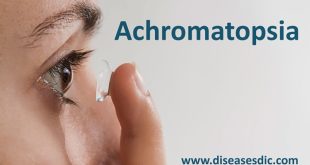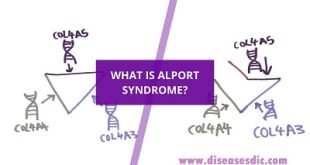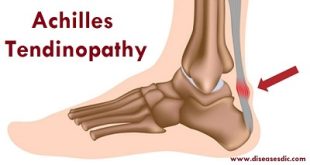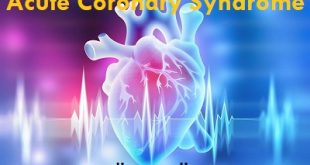Overview
Allergic rhinitis, also known as hay fever, is an allergic reaction. You have an allergy when your body overreacts to things that don’t cause problems for most people. These things are called allergens. Your body’s overreaction to the allergens is what causes symptoms.
There are 2 forms of allergic rhinitis:
Seasonal (hay fever): Caused by an allergy to pollen and/or mold spores in the air. Pollen is the fine powder that comes from the stamen of flowering plants. It can be carried through the air and is easily inhaled. Symptoms are seasonal and usually occur in spring, late summer, and fall.
Perennial: Caused by other allergens such as dust mites, pet hair or dander, or mold. Symptoms occur year-round.
Hay fever is the most common form of allergy. Symptoms of hay fever are seasonal. You will feel worse when the pollens that affect you are at their highest levels.
Pathophysiology
Allergic rhinitis involves inflammation of the mucous membranes of the nose, eyes, eustachian tubes, middle ear, sinuses, and pharynx. The nose invariably is involved, and the other organs are affected by certain individuals. Inflammation of the mucous membranes is characterized by a complex interaction of inflammatory mediators but ultimately is triggered by an immunoglobulin E (IgE) – mediated response to an extrinsic protein.
The tendency to develop allergically, or IgE-mediated, reactions to extrinsic allergens (proteins capable of causing an allergic reaction) has a genetic component. In susceptible individuals, exposure to certain foreign proteins leads to allergic sensitization, which is characterized by the production of specific IgE directed against these proteins. This specific IgE coats the surface of mast cells, which are present in the nasal mucosa. When the specific protein (eg, a specific pollen grain) is inhaled into the nose, it can bind to the IgE on the mast cells, leading to the immediate and delayed release of a number of mediators.
The mediators that are immediately released include histamine, tryptase, chymase, kinins, and heparin. The mast cells quickly synthesize other mediators, including leukotrienes and prostaglandin D2. These mediators, via various interactions, ultimately lead to the symptoms of rhinorrhea (ie, nasal congestion, sneezing, itching, redness, tearing, swelling, ear pressure, postnasal drip). Mucous glands are stimulated, leading to increased secretions. Vascular permeability is increased, leading to plasma exudation. Vasodilation occurs, leading to congestion and pressure. Sensory nerves are stimulated, leading to sneezing and itching. All of these events can occur in minutes; hence, this reaction is called the early, or immediate, phase of the reaction.
What causes allergic rhinitis?
When your body comes into contact with an allergen, it releases histamine, which is a natural chemical that defends your body from the allergen. This chemical can cause allergic rhinitis and its symptoms, including a runny nose, sneezing, and itchy eyes.
In addition to tree pollen, other common allergens include:
- Grass pollen
- Dust Mites
- Animal dander, which is old skin
- Cat saliva
- Mold
During certain times of the year, pollen can be especially problematic. Tree and flower pollens are more common in the spring. Grasses and weeds produce more pollen in the summer and fall.
Risk factors for allergic rhinitis
People whose families have a history of allergies are more likely to be diagnosed with allergic rhinitis. The genetic tendency to develop allergic rhinitis and other allergic conditions, such as asthma and atopic dermatitis (eczema), is known as atopy. Up to 40% of those with allergic rhinitis also have asthma and as many as 80% of those diagnosed with asthma report experiencing allergic rhinitis symptoms.
Research indicates that there are some environmental factors that can increase the likelihood of children developing allergic rhinitis. These include:
- Inhaling cigarette smoke during childhood
- A mother using tobacco products while pregnant with the child
- Exposure to mold at home
However, additional studies suggest that exposure to environmental or microbial biodiversity at a young age, such as living on a farm, may lessen the risk of developing allergic conditions.
Symptoms
Symptoms that occur shortly after you come into contact with the substance you are allergic to may include:
- Itchy nose, mouth, eyes, throat, skin, or any area
- Problems with smell
- Runny nose
- Sneezing
- Watery eyes
Symptoms that may develop later include:
- Stuffy nose (nasal congestion)
- Coughing
- Clogged ears and decreased sense of smell
- Sore throat
- Dark circles under the eyes
- Puffiness under the eyes
- Fatigue and irritability
- Headache
Complications of Allergic Rhinitis
Allergic rhinitis can affect your quality of life. Many patients report sleep disturbances, fatigue, irritability, depression, and difficulty paying attention as a result of their symptoms.
When left untreated, allergic rhinitis often becomes chronic and may lead to complications including:
- Chronic nasal inflammation and obstruction, which can lead to more serious complications in the airways
- Acute or chronic sinusitis
- Otitis media, or ear infection
- Sleep apnea or other sleep disturbances
- Upper respiratory tract infection
- Dental problems caused by excessive mouth breathing
- Eustachian tube dysfunction
Allergic rhinitis is also linked to increased chances of developing asthma, as well as asthma flares, worsening symptoms and difficult-to-control asthma in those with existing asthma.
Diagnosis and Test
Nonallergic rhinitis is diagnosed based on your symptoms and ruling out other causes, especially allergies. Your doctor will perform a physical examination and ask questions about your symptoms.
He or she may also recommend certain tests. There are no specific, definite tests used to diagnose nonallergic rhinitis. Your doctor is likely to conclude your symptoms are caused by nonallergic rhinitis if you have nasal congestion, a runny nose or postnasal drip, and tests for other conditions don’t reveal an underlying cause such as allergies or a sinus problem.
In some cases, your doctor may have you try a medication and see whether your symptoms improve.
Ruling out an allergic cause
In many cases, rhinitis is caused by an allergic reaction. The only way to be sure rhinitis isn’t caused by allergies is through allergy testing, which may involve skin or blood tests.
Skin test. To find out whether your symptoms might be caused by a certain allergen, your skin is pricked and exposed to small amounts of common airborne allergens, such as dust mites, mold, pollen, cat and dog dander. If you’re allergic to a particular allergen, you’ll likely develop a raised bump (hive) at the test location on your skin. If you’re not allergic to any of the substances, your skin looks normal.
Blood test. A blood test can measure your immune system’s response to common allergens by measuring the amount of certain antibodies in your bloodstream, known as immunoglobulin E (IgE) antibodies. A blood sample is sent to a medical laboratory, where it can be tested for evidence of sensitivity to specific allergens.
In some cases, rhinitis may be caused by both allergic and nonallergic causes.
Ruling out sinus problems
Your doctor will also want to be sure your symptoms aren’t caused by a sinus problem related to a deviated septum or nasal polyps. If your doctor suspects a sinus problem may be causing your symptoms, you may need an imaging test to view your sinuses.
Nasal endoscopy. This test involves looking at the inside of your nasal passages. This is done with a thin, fiber-optic viewing instrument called an endoscope. Your doctor will pass the fiber-optic endoscope through your nostrils to examine your nasal passages and sinuses.
Computerized tomography (CT) scan. This procedure is a computerized X-ray technique that produces images of your sinuses that are more detailed than those produced by conventional X-ray exams.
What Are the Treatments for Allergic Rhinitis?
The first and best option is to avoid contact with substances that trigger your nasal allergies (allergens). When prevention is not enough, consider using over-the-counter or prescription medicines:
Antihistamines are taken by mouth or as a nasal spray. They can relieve sneezing and itching in the nose and eyes. They also reduce a runny nose and, to a lesser extent, nasal stuffiness.
Some popular over-the-counter (OTC) antihistamines include:
- fexofenadine (Allegra)
- diphenhydramine (Benadryl)
- desloratadine (Clarinex)
- loratadine (Claritin)
- levocetirizine (Xyzal)
- cetirizine (Zyrtec)
Decongestants are taken by mouth or as a nasal spray or drops. They help shrink the lining of the nasal passages which relieves nasal stuffiness. These nose drops and sprays should be taken short-term.
Popular OTC decongestants include:
- Oxymetazoline (Afrin nasal spray)
- Pseudoephedrine (Sudafed)
- Phenylephrine (Sudafed PE)
- Cetirizine with pseudoephedrine (Zyrtec-D)
Nasal corticosteroids are used in nasal spray form. They reduce inflammation in the nose and block allergic reactions. They are the most effective medicine type for allergic rhinitis because they can reduce all symptoms, including nasal congestion. Nasal corticosteroids have few side effects.
Leukotriene receptor antagonists block the action of important chemical messengers other than histamine that are involved in allergic reactions.
Cromolyn sodium is a nasal spray that blocks the release of chemicals that cause allergy symptoms, including histamine and leukotrienes. This medicine has few side effects, but you must take it four times a day.
Nasal allergy symptoms may disappear completely when the allergen is removed or after the allergy is treated. Talk to your pharmacist and health care provider about what is best for you.
Many people with allergies do not get complete relief from medications. They may be candidates for immunotherapy. Immunotherapy is a long-term treatment that can help prevent or reduce the severity of allergic reactions and change the course of allergic disease by modifying the body’s immune response to allergens.
How to prevent or avoid allergic rhinitis?
Allergic rhinitis cannot be prevented. You can help your symptoms by avoiding the things that you are allergic, including:
- Keeping windows closed. This is especially important during high-pollen seasons.
- Washing your hands after petting animals.
- Using dust- and mite-proof bedding and mattress covers.
- Wearing glasses outside to protect your eyes.
- Showering before bed to wash off allergens from hair and skin.
You can also avoid things that can make your symptoms worse, such as:
- Aerosol sprays
- Air pollution
- Cold temperatures
- Humidity
- Irritating fumes
- Tobacco smoke
- Wind
- Wood smoke
 Diseases Treatments Dictionary This is complete solution to read all diseases treatments Which covers Prevention, Causes, Symptoms, Medical Terms, Drugs, Prescription, Natural Remedies with cures and Treatments. Most of the common diseases were listed in names, split with categories.
Diseases Treatments Dictionary This is complete solution to read all diseases treatments Which covers Prevention, Causes, Symptoms, Medical Terms, Drugs, Prescription, Natural Remedies with cures and Treatments. Most of the common diseases were listed in names, split with categories.








Allergic rhinitis all medicines mentioned are allopathic .Ayurvedic
not mentioned please concerned to ayurvedic also
very nice notes and well framed and well understood.
I’m very interested in this subject cause my wife has been a long victim of this allergy. please advise .
Please consult a doctor at the earliest.
sir, what ever you have explained about sinus infection is extremely right
sir I have snoring throat problem last twenty years mucus is continuesly coming out from my throat
please suggest me what to do or whom to consalt
Please consult a doctor to get treated with this problem.
Please Dr. I’m sufferings from sinus sleepless, headache etc. please help me to care it
Get consulted with the doctor to get rid of your problems.
What are the natural treatment for Allergic Rhinitis
Natural treatments for allergic rhinitis include use of bioavailable curcumin and quercetin, two plant active principals studies in our laboratories.
Bioextract had developed Nasaler® as a natural remedy for allergic rhinitis.
It is well known fact that things are generally hard. We are experiencing difficult times. Via sickness and diseases that which pertains to life-medical, for it is often said that “Health is wealth”. But the matter of poor health is daily becoming alarming and a matter of serious concern. Death rate is high but believe me it is due to ignorance of what HERBS can do for us. Most people under estimate the natural herbs. But we sometimes forget that most of the drugs and tablets are for plants.
its so helpful, well planned and detailed
Me whenever I take a shower after, the body itch me. Currently it is worse than before, so how can I treat it.
Please consult a dermatologist.
avoid using fumes,dust
Hello. I have Allergic Rhinitis for almost 10 years n I’m on medication. I’m using the Oxy – nase nasal spray. For the past years going through sleep is a difficult thing for me. Doctors did prescribed me tablets but in vain. They did gave me several kinds of nasal spray but still in vain until I finally get the right one that’s Oxy-nase nasal spray. Doc did told me there is no cure for this kind of allergic but hopefully one day I will be able to go through . That’s all I want to share abt me
Very important and nice information. It should be updated regularly
if you wakes up every night and develop nose running, what do you do to stop it.
Experiencing periods of nighttime nasal congestion does not mean that you have to resign yourself to nights filled with restless sleep. No matter the reason that you or your children experience a stuffy nose around bedtime, there are steps that you can take to help you and your family breathe more easily during the night and get better, more restful sleep.
Arrange your pillows so that you can sleep with your head elevated.
Use a humidifier to keep the air from becoming too dry
Drink clear fluids throughout the day, especially those without sugar, alcohol or caffeine, to keep mucus thin and help drain it from your nose.
Remove mucus with the help of a nasal wash, using a saline nasal spray.
Cold medicines, like NyQuil SEVERE, will help dry up your nasal passages and help relieve your runny nose. For cold symptoms and runny nose at night, try which can dry up your runny nose and calm your cough so you can get the rest you need.
What about itching all the whole when it’s cold.
Cold urticaria is a skin reaction to cold that appears within minutes after cold exposure.
It might be Cold urticaria- a skin reaction to cold that appears within minutes after cold exposure.
what about dexna tablets do they also relief the effects of allergy
Yes, Dexamethasone works on the immune system to help relieve swelling, redness, itching, and allergic reactions.
I apliciate.But I want to know the treatment of nasal which have some nasal polyps.
Please read the treatment from this link https://diseasesdic.com/nasal-polyps-overview-causes-and-prevention/
can allergic rhenitis be transmitted to other members of family?
Allergic rhinitis cannot be transmitted from person to person.
I am suffering from coughing only so what to do.?
Coughs can be treated in a variety of ways, depending on the cause. For healthy adults, most treatments will involve self-care. However we request you to consult a doctor to get treatment.
does allergic rhinitis cause mouth stinking and mucus from the throat
Nasal allergies can cause excess mucus production in the nose and sinus cavities, leading to post-nasal drip. As nasal discharge slides down the back of the throat, it can give oral bacteria a place to multiply, leading to characteristic ‘bad breath’.
A question. Does this condition include both runny nose, post nasal drip (which causes gagging) &/or limited sneezing?
Yes, Allergic Rhinitis (commonly known as hay fever) can encompass a variety of symptoms, including a runny nose, postnasal drip leading to throat irritation or coughing, and limited sneezing. Individuals with allergic rhinitis may experience different combinations and severity of symptoms. It’s important to note that allergic rhinitis is triggered by allergens such as pollen, dust mites, or pet dander, and the specific symptoms can vary among individuals. If you suspect allergic rhinitis, consulting with a healthcare professional can help determine the appropriate diagnosis and management plan based on your specific symptoms and triggers.
is excess applying perfumes are
also responsible for the allegic rhinitis?